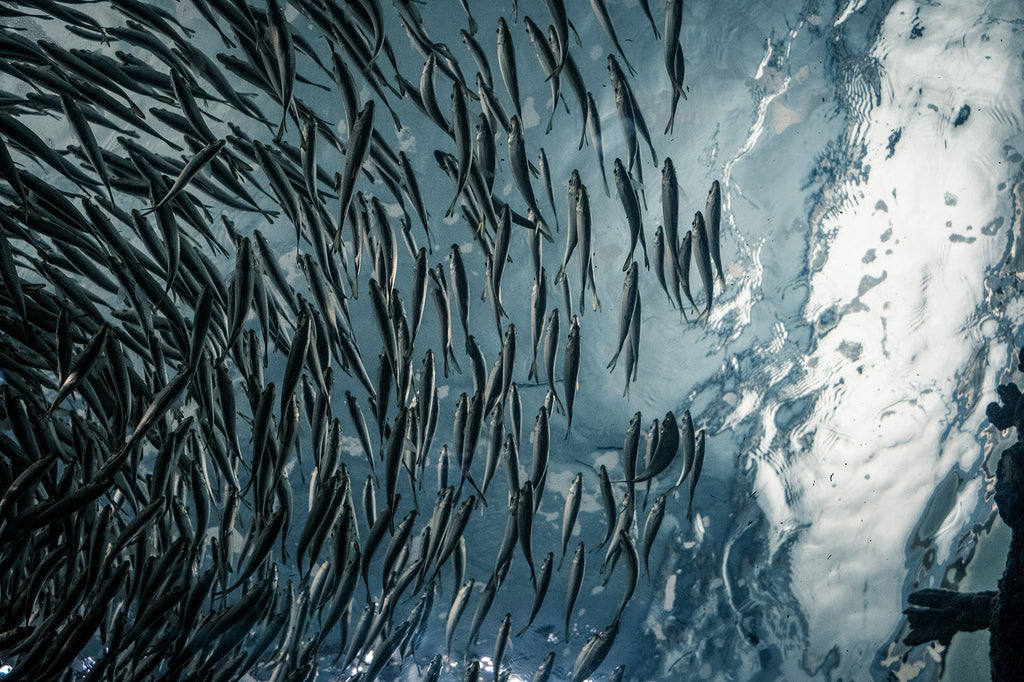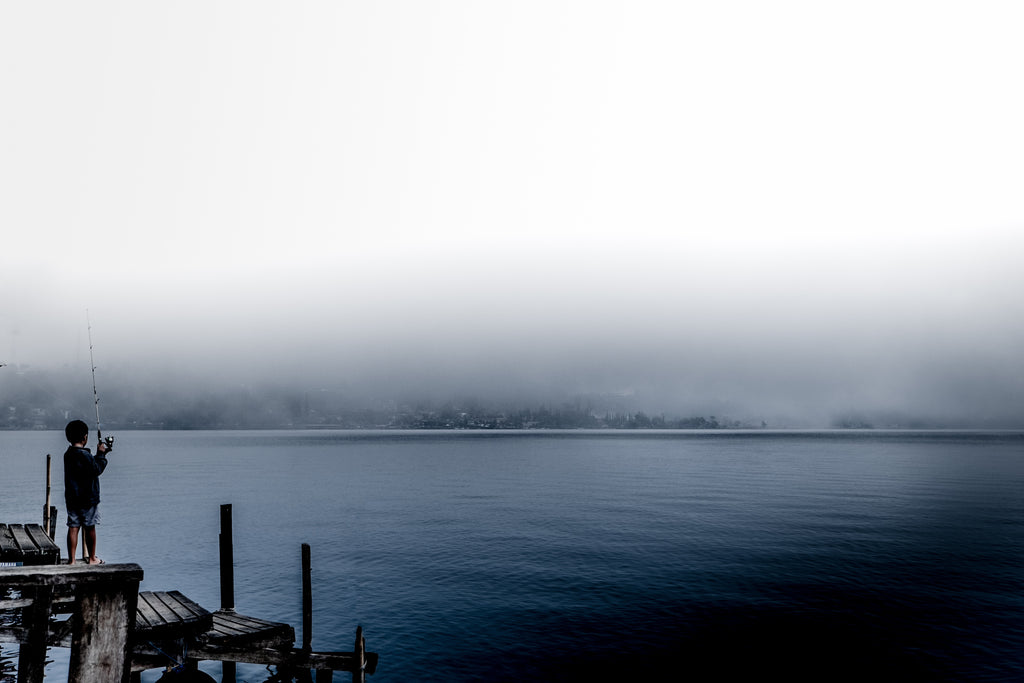Living in a coastal community, we look at the ocean every day, and we know how lucky we are. It also means that seafood is a popular protein choice. We hope that anyone who consumes seafood understands that our oceans are in crisis, and human impact is the main contributor. By today's standards, we treat our oceans as a resource for food and an avenue of transportation, but we do not respect what the impacts of that mentality mean. For too long we have been pillaging the Earth's waters, and not doing enough to ensure they stay healthy.
Several important commercial fish populations (such as Atlantic bluefin tuna) have declined to the point where their survival as a species is threatened.(worldwidelife.org) Almost 31% of the world's fish populations are overfished, and another 58% are fished to the absolute maximum sustainable level. (ed.ted.com) (These numbers are likely higher now than when they were reported.) Ocean Wise estimates that 40% of what is caught in commercial nets is unintended bycatch, other marine life not for consumption like seals, turtles, dolphins and small fish, the majority of which is thrown back into the ocean and do not survive. Plus, harmful fishing practices like bottom trawling and dredging, are destroying marine habitats used for breeding, spawning, nursery, and feeding, making survival for many species challenging. Most people would agree that is heartbreaking to think about.

What factors have led us to this point?
- Poor Fisheries Management: Since the 1950s, our intensity in fishing has been steadily growing, with many economic factors driving that incline. Our national governments have not kept up with this demand, meaning that policy is now far behind where it needs to be in order to quell this voracious industry. We need to create a global set of rules and regulations that limit our fishing to a sustainable level.
- Illegal Fishing: The WWF estimates that 20% of the world's catch comes from illegal fishing, those individuals operating outside of regulations, further compounding the overfishing problem in a way that is hard to combat.
- Lack of Protected Areas: There are too many areas of the ocean that get exploited, whether they are within national waters or not. World wide organizations need to be established to protect bigger spanses of sea so they may have a chance at maintaining their current health, or recovering from damage already done.
- Climate Change: Although not a direct result of the fishing industry, the habitat destruction, and salination and temperature changes in our oceans happening due to climate change are making it even harder for marine life to survive and reproduce.
The reality is this: with the way we are currently approaching fishing, wild fish simply can't naturally reproduce as quickly as the demand that 7.5 billion people are putting on them. Early cultures that lived along the sea depended a great deal on the animals within to sustain their populations, and many coastal communities still do today, but the way we are meeting the demand of the global population at large is plainly not sustainable. Without significant change, the decline in marine life is going to continue, and we are going to be left with destitute waters.


What is the solution?
- Regulation: Governments all over the world need to invest in creating stricter regulations about how much, where, when, and what is being taken from our oceans, as well as how it is done to protect marine habitats and other marine species. The backlash will be inevitable, and we as citizens need to speak up and support this kind of policy change.
- Marine Reserves: Establishing more protected areas that are endangered or special to the marine world. Like Sylvia Earle's Mission Blue Hope Spots.
- Reduced Demand: Consumers can stand for sustainable seafood by boycotting anything that is sourced otherwise. We can also choose to get our protein from other sources, especially if we don't live near the ocean. We can also give up seafood altogether, finding vegan alternatives. On top of that, there needs to be National investment in more sustainable fishing practices and alternate sources of protein to make this transition easier for a larger percentage of the population.
- Consumer Awareness + Global Shift: When we consume without a conscience, we are essentially saying that we don't care about the impact of our actions. Our hope is that by having discussions like this, more people are inspired to learn about how their choices effect the planet, and commit to lasting changes in their lifestyles. The first step is education, the second is a shift in how we view our consumption and the use of the limited resources we are provided with by the Earth.

When it comes down to it, it is a personal choice. Not every one of us will be able to enact policy, but we can support those who will and choose with our dollars. There are so many things in life that you can easily pass by, purchase, even consume without thinking of the consequences. When we aren't catching it or growing it ourselves, we become so far removed from the things we eat. It's important to have a personal responsibility for the impact we have. The sentiment that we are borrowing the Earth from the generation after us is becoming all the more real with predictions from scientists putting our oceans empty by 2050 or earlier. Keeping our oceans clean and healthy is a global responsibility. Creating conscious habits to achieve this is how we start moving towards lasting change.
When you have to make a choice, the option with the least amount of impact you can have as humans to the ocean is always the best option. Our commitment and our challenge to you is to only eat line caught, local seafood, or no seafood at all.
Respect the oceans, respect the Earth.
Educational Resources:
Mission Blue, Netflix
WWF, Overfishing
from SALT Shop - Journal https://saltshop.ca/blogs/news/ocean-wise-sustainable-seafood
No comments:
Post a Comment